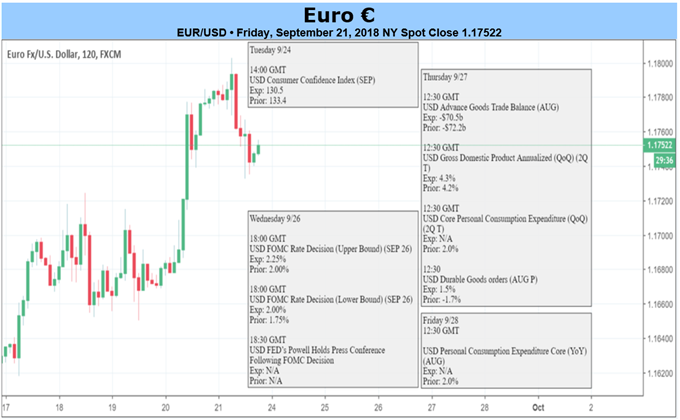
Fundamental Forecast for EUR/USD: Neutral
The Euro was a top three performing major currency last week, only losing ground to the resurgent Australian and New Zealand Dollars, thanks to buoyed risk appetite around the globe. EUR/JPY led the way higher among the EUR-crosses, gaining +1.52%, while EUR/USD added +1.06% and EUR/GBP gained +1.03%. Amid a quiet economic calendar, the major catalyst for Euro gains was news that the Italian government wouldn’t run a budget deficit above 1.6% of its GDP, the threshold that European Commission officials have indicated would be necessary for approval and continued support from supranational institutions.
The key development to look out for with respect to the Italian budget will be what happens with short-term Italian debt. Recently, on August 31, the 2-year yield was as high as 1.465%; following the budget announcement this week, the 2-year yield fell as low as 0.630% (it closed the end of the week at 0.757%). It’s no coincidence that the Euro rally in September coincided with a reduction of perceived short-term sovereign credit risk around Italy. If concerns around Italy are going to impact the Euro, it will be via another rise in short-term yields.
But if the Italian budget issue is about to fade into the background, the window between tensions is small. The return of ‘hard Brexit’ fears resulting from the surprisingly fractious Salzburg summit obviously hit the British Pound hard at the end of the week, but the spillover impact to the Euro was apparent as well. If odds of a disruptive exit from the EU increase, the uncertainty surrounding the impact to trade could be enough of a reason for the European Central Bank to push back its monetary policy timeline next year.









Leave A Comment